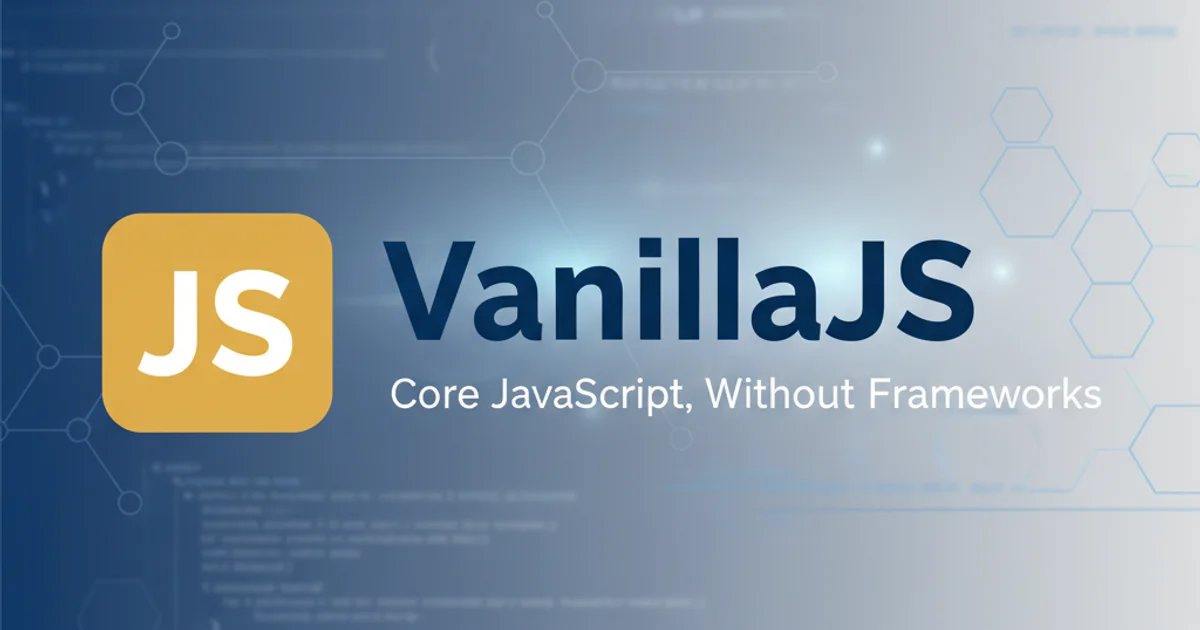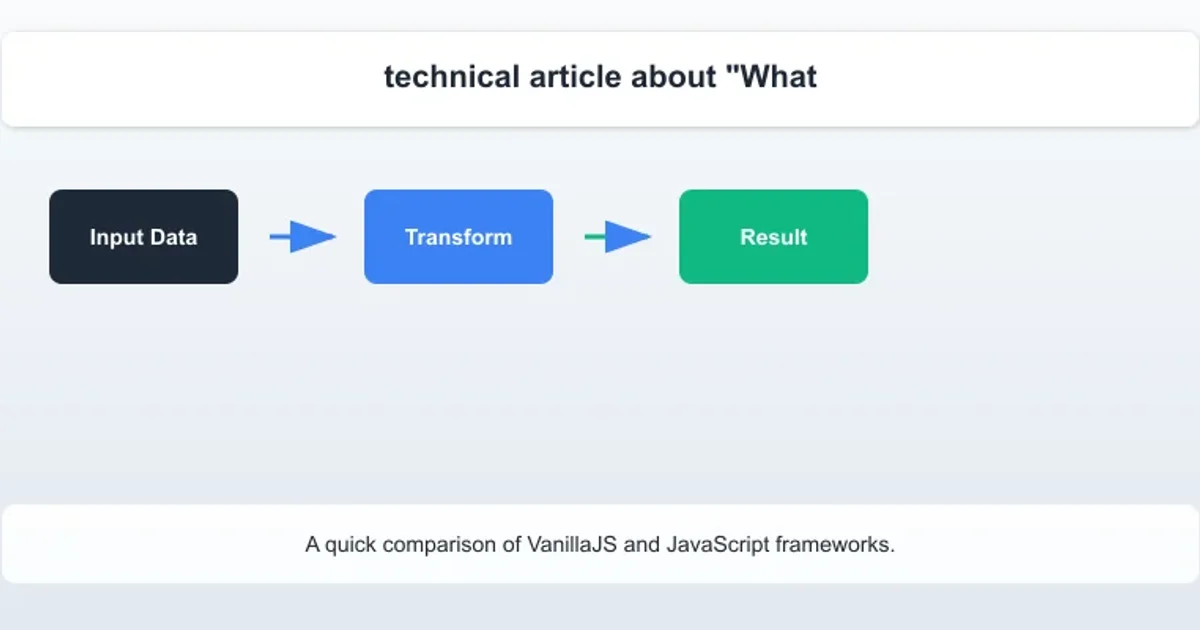What is VanillaJS?
Categories:
What is VanillaJS? Understanding JavaScript Without Frameworks

Explore VanillaJS, the term for plain JavaScript, and learn why understanding its fundamentals is crucial for every web developer. This article demystifies the concept and highlights its importance in modern web development.
In the fast-paced world of web development, new frameworks and libraries emerge constantly. Amidst this evolution, a term often surfaces: "VanillaJS." Far from being a new framework, VanillaJS is simply a playful, often ironic, term for plain, unadulterated JavaScript. It refers to using the core JavaScript language and its native browser APIs without relying on external libraries like React, Angular, or Vue.js.
The Essence of VanillaJS
VanillaJS isn't something you install or import; it's the foundational language itself. When developers talk about VanillaJS, they are emphasizing the use of JavaScript directly, leveraging its built-in capabilities to manipulate the Document Object Model (DOM), handle events, make network requests, and perform other client-side operations. This approach focuses on deep understanding of how the browser and JavaScript interact at a fundamental level.
flowchart TD
A[Start Development] --> B{Choose Approach}
B -->|Framework/Library| C[Use React, Vue, Angular, etc.]
B -->|VanillaJS| D[Use Plain JavaScript]
C --> E[Leverage Abstractions & Tools]
D --> F[Direct DOM Manipulation & Native APIs]
E --> G[Build Application]
F --> G[Build Application]Decision flow: Frameworks vs. VanillaJS
Why Learn and Use VanillaJS?
While frameworks offer significant advantages in terms of productivity and scalability, a strong grasp of VanillaJS provides numerous benefits:
- Deeper Understanding: It forces developers to understand how JavaScript truly works under the hood, including DOM manipulation, event handling, and asynchronous operations.
- Performance: Without the overhead of a framework, VanillaJS applications can often be smaller and faster, especially for simpler projects.
- Debugging Skills: Debugging framework code can sometimes be complex. With VanillaJS, you're debugging your own logic directly.
- Framework Agnosticism: A solid VanillaJS foundation makes it easier to learn new frameworks, as you understand the core concepts they abstract away.
- No Dependencies: Reduces project size and potential security vulnerabilities associated with third-party libraries.
// VanillaJS example: Changing text content and adding an event listener
// Get an element by its ID
const myElement = document.getElementById('my-paragraph');
// Change its text content
if (myElement) {
myElement.textContent = 'Hello from VanillaJS!';
}
// Get a button element
const myButton = document.getElementById('my-button');
// Add an event listener to the button
if (myButton) {
myButton.addEventListener('click', () => {
alert('Button clicked using VanillaJS!');
});
}
Basic DOM manipulation and event handling with VanillaJS.
When to Choose VanillaJS
While frameworks are excellent for large, complex applications, VanillaJS shines in specific scenarios:
- Small, Lightweight Projects: For simple scripts, interactive widgets, or small websites where a full framework would be overkill.
- Performance-Critical Applications: When every kilobyte and millisecond counts, avoiding framework overhead can be beneficial.
- Learning and Prototyping: It's an excellent way to learn JavaScript fundamentals and quickly prototype ideas without setting up a complex build environment.
- Browser Extensions: Many browser extensions are built using VanillaJS due to their often simple requirements and the need for minimal overhead.
- Legacy Systems: Maintaining or extending older codebases that predate modern frameworks often requires strong VanillaJS skills.

A quick comparison of VanillaJS and JavaScript frameworks.
In conclusion, VanillaJS is not a competitor to modern frameworks but rather the bedrock upon which they are built. Mastering it empowers developers with a deeper understanding of the web platform, leading to more informed decisions, better debugging, and ultimately, more robust and efficient web applications.